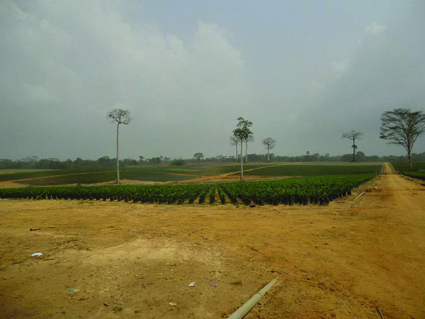Government should broker equitable, sustainable relations between EU and Global South/ACP – Jacinta Fay
EU and Irish trade policies are undermining sustainable development in the Global South. We need a change from the current approach which is resulting in growth without development for these countries. The Irish Government has committed itself to advancing EU trade negotiations and supporting the World Trade Organisation and the multilateral trading system, including the Doha Round of negotiations, during its EU Presidency. This ignores both growing concern about this model of global trade, rooted in trade liberalisation, and the fact that these priorities undermine Irish and EU development policies.
EU trade policies seek to expand trade between Europe and other parts of the world. They follow an aggressive competitiveness strategy and use bilateral and multilateral free-trade agreements to secure market access and cheap supplies of raw materials for European companies. They pursue an agenda of trade liberalisation which encourages countries of the Global South to open up their markets to international trade by reducing tariffs and quotas, increasing rights for investors, privatising industries and services, and reducing support to domestic producers.
The EU uses bilateral and multilateral free-trade agreements to secure market access and cheap supplies of raw materials for European companies
Loss of tariff revenue to trade liberalisation leads to a reduction in public revenue in developing countries. Opening up markets negatively impacts on local producers as cheap goods from Northern countries flood markets.
In the agricultural sector this has had a particularly detrimental effect on food sovereignty. Small scale and subsistence farmers are unable to compete with subsidised agricultural imports from Europe and other regions. European Commission impact assessments have acknowledged that Economic Partnership Agreements, for example, could lead to the collapse of the manufacturing sector in West Africa.
Irish and EU policies prioritise the opening up of new markets and a substantial role for the private sector in development co-operation. The primary concern appears to be how Irish business can profit in Africa rather than underlining the need for ethical trade and sustainable development which would support local economies.
In Liberia the result of such policies has been land grabbing and human rights violations by extractive industries and agribusinesses. Transnational corporations lease large tracts of land to cultivate rubber and oil palm, preventing their use for food production. Rubber, palm-oil and logging plantations, known as ‘concessions’ currently cover approximately 2,546,406 hectares or 25% of the country. Hundreds of thousands of Liberian citizens live in districts that were granted to companies without local input and consent.

These contracts cannot be implemented without violating the rights of local communities simply because operations encroach on their farmlands. This leads to significant loss of livelihoods and negative impacts on local economies. Land deals have become the new ‘Scramble for Africa’. 56.2 million hectares of agricultural land (roughly the size of Kenya) has been bought or leased by investors since 2000 for export-oriented projects which undermine food sovereignty, local industry and environmental sustainability.
EU trade policy puts corporate interests ahead of sustainable and inclusive development. However, there appears to be little consensus on this between EU institutions in practice. MEPs recently voted to reject the European Commission’s proposal to impose a unilateral deadline of 2014 on African, Caribbean and Pacific Countries (ACP) to sign trade agreements that are deemed unfair. The EU Council supported the European Commission’s position.
Ireland, as EU president, now plays a crucial role as chair of the Council of Ministers in negotiating a compromise between the EU Council and European Parliament. Irish and EU civil society organisations are urging the Irish government to ensure this negotiation results in a fair deal and sustainable development in ACP countries and more equitable relations between the EU and the Global South. This is an opportunity for Ireland to promote a global trade system that prioritises justice, equity, rights and sustainable development.
Jacinta Fay is co-ordinator of the Liberia Solidarity Group’s Trade Justice Project which aims to ensure that human rights and ethical business are the cornerstone of Ireland’s trade with the Global South. This article is based on “The Free Trade Trap” published by the Liberia Solidarity Group.